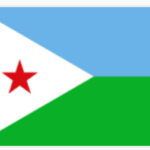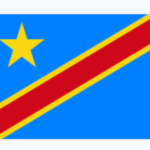Are you curious about the Republic of the Congo, one of the countries in Central Africa that shares its name and river with its larger neighbor, the Democratic Republic of the Congo? If so, you might enjoy reading this blog post, where we will explore some interesting facts and features of this diverse and fascinating nation.
The Republic of the Congo, also known as Congo-Brazzaville or just Congo, has a population of about 5.4 million people and covers an area of 342,000 square kilometers. It is bordered by five other countries: Cameroon, Central African Republic, DR Congo, Gabon and Angola (the exclave of Cabinda). It also has a 160-kilometer coastline along the Atlantic Ocean, where its capital city, Brazzaville, is located.
The country takes its name from the Congo River, which forms part of its eastern border and is the second longest and deepest river in Africa. The name of the river comes from Kongo, a Bantu kingdom that occupied its mouth and whose people were called Bakongo, meaning “hunters”. The river is a vital source of water, transportation and hydroelectric power for both Congos and other countries in the region.
The Republic of the Congo has a rich and diverse history, culture and natural environment. Here are some of the highlights:
- The region has been inhabited since ancient times by various ethnic groups, such as the Pygmies, the Kongo, the Teke, the Mbochi and the Sangha. The country has four official languages: French (the colonial language), Lingala and Monokutuba (both lingua francas) and Kikongo (a local language).
- The country was colonized by France in the late 19th century and became part of French Equatorial Africa. It gained its independence in 1960 after a referendum on autonomy. The first president was Fulbert Youlou, a former Catholic priest.
- The country experienced political instability, coups and civil wars in the following decades, as different factions fought for power and resources. The most recent conflict ended in 2003 with a peace agreement that established a power-sharing government. The current president is Denis Sassou-Nguesso, who has been in office since 1997 (except for a brief period between 1992 and 1997).
- The country is one of the world’s largest producers of oil, which accounts for most of its export earnings and government revenue. However, it also faces challenges such as poverty, corruption, inequality and environmental degradation. The country ranks 179th out of 189 countries in the Human Development Index.
- The country is home to some of the most pristine and diverse ecosystems in Africa, especially in its rainforests, savannas and wetlands. It hosts a variety of wildlife species, such as gorillas, chimpanzees, elephants, leopards, hippos and crocodiles. It also has one UNESCO World Heritage Site: the Sangha Trinational, a transboundary conservation area shared with Cameroon and Central African Republic.
- The country has a vibrant and diverse cultural scene, influenced by its ethnic diversity, colonial legacy and regional connections. It is known for its music genres, such as soukous, rumba and ndombolo, which have influenced other African and global music styles. It also has a rich literary tradition, with writers such as Alain Mabanckou, Henri Lopes and Emmanuel Dongala.








